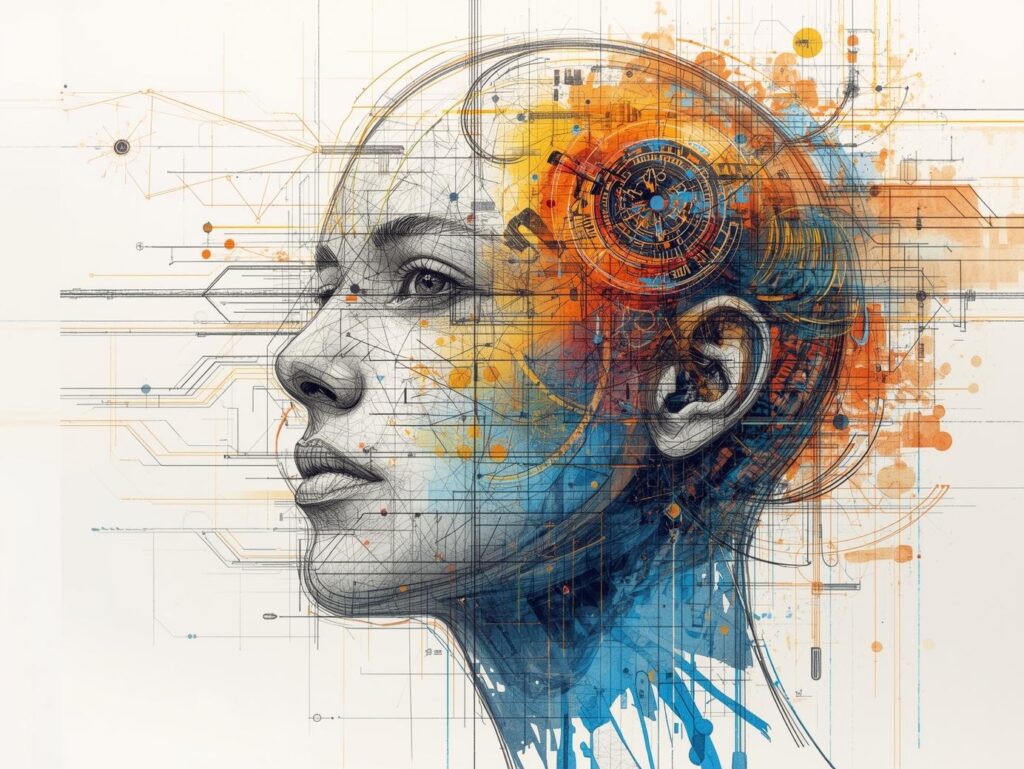Introduction
Artificial Intelligence (AI) has become one of the most transformative technologies of the 21st century. Once confined to science fiction, today it powers search engines, medical diagnostics, language translation, autonomous vehicles, and even public policies. For developing nations, and especially for organizations committed to human development such as CHUYA SONCCO, AI represents both an unprecedented opportunity to accelerate progress and a challenge to ensure inclusion, ethics, and sustainability.
The question is not whether AI will shape our future, but how we can ensure it becomes a force for social good, serving communities, protecting human rights, and driving equitable growth.

Opportunities of AI for Social Good
1. Healthcare and Telemedicine
AI-driven tools are revolutionizing healthcare, with direct benefits for vulnerable communities:
- Early diagnostics through AI-based imaging and pattern recognition can detect diseases such as cancer, tuberculosis, or COVID-19 faster and more accurately.
- Telemedicine platforms powered by AI expand medical care to remote areas, overcoming geographical barriers.
- Predictive analytics allow governments and hospitals to anticipate disease outbreaks and allocate resources efficiently.
For rural communities in Peru and Latin America, these solutions could mean access to healthcare where there was none before.
2. Education of the Future
Education is at the heart of development, and AI has the potential to personalize learning and empower teachers:
- Adaptive learning platforms adjust content to each student’s pace and style.
- Virtual tutors and chatbots provide 24/7 academic support.
- Data analysis helps teachers identify learning gaps and optimize curricula.
For underserved schools, AI can act as an equalizer, giving rural students access to the same tools as those in urban centers.
3. Sustainability and Climate Action
The climate crisis demands urgent and innovative solutions, and AI is a powerful ally:
- Environmental monitoring systems use AI and satellite data to track deforestation, illegal mining, or water scarcity.
- Smart agriculture enables farmers to optimize irrigation, fertilizers, and harvest cycles, reducing environmental impact.
- Energy optimization algorithms help cities reduce emissions and transition toward clean energy.
By combining traditional knowledge with digital tools, communities can build sustainable and resilient territories.
4. Social Inclusion and Accessibility
AI can reduce inequalities when used responsibly:
- Assistive technologies such as speech recognition or text-to-voice empower people with disabilities.
- Automated translation tools bridge language barriers, giving indigenous and multilingual populations more access to services.
- Digital financial services powered by AI increase access to credit and savings for populations excluded from traditional banking.
AI has the potential to democratize opportunities, provided that inclusion is at the center of its design.
Challenges of AI for Social Good
Despite its promise, AI also poses significant risks that cannot be ignored.
1. Ethics and Bias
AI systems learn from existing data, and if that data contains bias or discrimination, the results will replicate and amplify inequalities. Examples include:
- Recruitment systems that discriminate against women.
- Facial recognition tools less accurate with darker skin tones.
- Algorithms that deny loans or medical treatment based on socioeconomic biases.
Ethical AI must prioritize transparency, fairness, and accountability.
2. The Digital Divide
Not all communities are ready to benefit from AI.
- Rural areas lack internet connectivity, infrastructure, and digital literacy.
- Without inclusive policies, AI could become a privilege for the few, deepening inequality.
- Addressing this gap requires public policies, investment, and civil society initiatives.
AI must not become another source of exclusion—it must be a tool to bridge divides.
3. Data Privacy and Security
AI depends on massive amounts of data, but this raises concerns:
- Protection of sensitive health and education data is crucial.
- Citizens must retain control over their personal information.
- Cybersecurity is essential to prevent abuses and manipulation.
Building trust in AI requires strong legal frameworks and ethical governance.
4. Governance and Regulation
AI develops faster than the laws that govern it:
- Countries need clear regulations to ensure that AI is used for the public good.
- Civil society must participate in defining policies and standards.
- Without global collaboration, AI risks being monopolized by a handful of corporations and governments.
Good governance means ensuring that innovation aligns with human rights, democracy, and social justice.
The Role of CHUYA SONCCO
As a civil society organization, CHUYA SONCCO embraces AI not just as a technological tool, but as a transformative force for inclusive development. Our commitment is to:
- Promote education and digital literacy so that every citizen can understand and benefit from AI.
- Develop projects in digital health and telemedicine, especially in underserved communities.
- Support innovation ecosystems that combine sustainability, ethics, and technology.
- Advocate for ethical and inclusive AI governance, ensuring that human dignity remains central.
For us, AI is not about replacing people—it is about empowering them to create solutions for their own futures.
Conclusion
Artificial Intelligence is reshaping our world. Its power to accelerate human development is undeniable, but so are the risks of exclusion, inequality, and misuse.
At CHUYA SONCCO, we believe that AI must be human-centered, ethical, and inclusive, ensuring that technology serves not just a few, but all of humanity. If we manage to place equity, sustainability, and social justice at the core of innovation, AI will not just transform industries—it will transform lives.
The challenge is clear: to harness AI’s potential while preserving our values, our environment, and our humanity.





